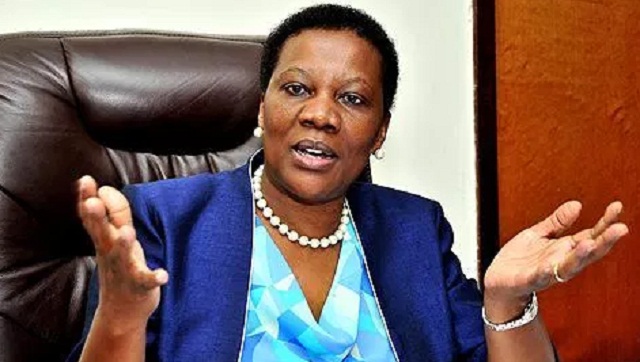
The energy minister says Uganda has also made progress with the construction of the US$3.5bn East Africa Crude Oil Pipeline (EACOP) which is a 1445 heated pipeline from Hoima in mid-western Uganda to the Indian Ocean port of Tanga in Tanzania.
Muloni says the FEED for the crude pipeline was finalized last year and submitted to the government. However, the two neighbouring states spent 2018 negotiating with the JV partners on how the crude export pipeline should be developed.
So far, four rounds of negotiations of the host government agreements between the government of Uganda and the lead project sponsors have been held since February, 2018, but there remains “sticking issues” on the economic model of the project and the allocation of pumped oil to both the refinery and the EACOP.
Muloni says she expects the host gov¬ernment agreements to be signed “soon” so construction of the pipeline can start.
“We have gone a long way but there are a few areas that we have not agreed on because there are still a few points to agree on,” She said, “We expected the JV partners to make their FID to allow the construction of the pipeline.”
“We have invested a lot of time into this process (and) I am confident that we will achieve a win-win situation.”
Another stumbling block between the government and the JV partners has revolved around Tullow Uganda Pty Ltd’s farm down of its stake in Uganda’s oil operations.
Although Tullow entered into a sale and purchase agreement to farm down 21.5% of the participating interests to Total and CNOOC for up to US$900 mil¬lion, it appears negotiations over how much capital gains tax is due the govern¬ment has been quite contentious.
When the transaction goes ahead, Tullow will remain with 11.7% partici¬pating interest and a non-operator.
However, Muloni says, she gave “con¬ditional consent” on Nov.21, last year, for the transaction to proceed, subject to Tullow’s payment of the tax obliga¬tions as assessed by the Uganda Revenue Authority (URA). The URA says Tullow must pay US$ 167 million.
“For me, as a licensee, I have given con¬ditional consent to this transaction sub¬ject to payment of the tax obligation as assessed by URA,” Muloni said, “What now remains is that once this transaction gets out of the way, the companies need to make a final investment decision.”
“Producing oil involves many stake¬holders each with a key role and time¬lines to meet. That is why these pains¬taking decisions have been taking long,” Muloni said.
Government remains upbeat
She, however, remains upbeat, saying Ugandans should appreciate the signifi¬cant progress made so far in taking for¬ward the key projects leading to first oil.
“We have already fallen off the schedule by a year. If we can catch up, then we can look at the tail end of 2021 or at least a slight cross into 2022.”
“As a country, our primary focus should be on ensuring that the journey towards first oil is one that brings in maximum benefit to the country, by ensuring that the oil and gas resources are produced efficiently, and that Ugan¬dans can competitively participate through provision of goods and ser¬vices.”
“There is no short cut for a country whose agenda is sustainable exploitation of natural resources in order to create lasting value for society.”
 The Independent Uganda: You get the Truth we Pay the Price
The Independent Uganda: You get the Truth we Pay the Price


